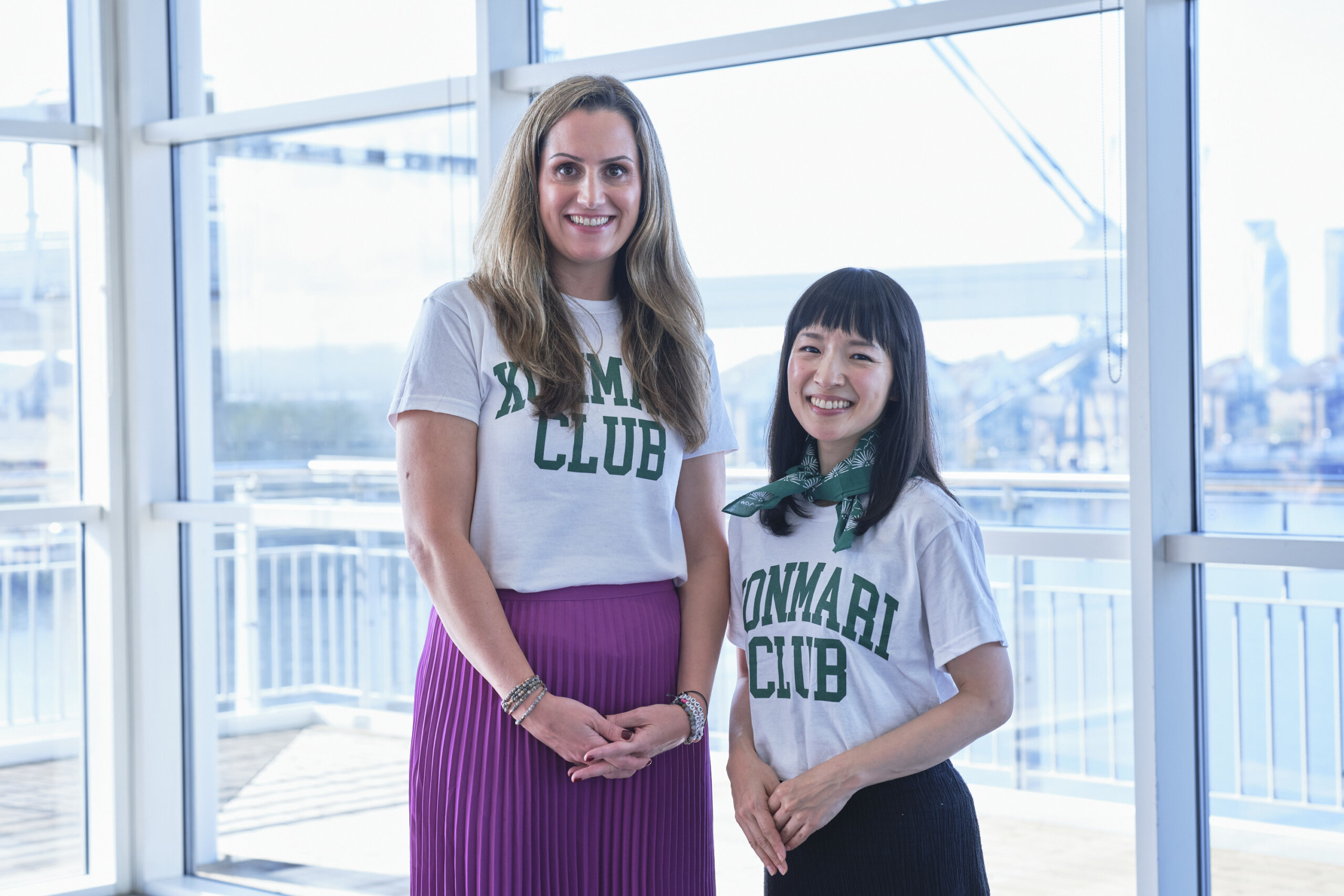This guest column is part of our Organize the World series, in which we feature KonMari Consultants from the many countries where they’re changing lives through organizing. We’ve asked them to give us their unique insights into living a more organized life.
We’re thrilled to introduce you to Patty Morrissey, a Master Certified KonMari Consultant and the woman behind our new KonMari Club. As the Club’s program director, she will guide the launch of our first program in January 2025 with the help of a team of expert coaches, monthly guest visitors and, of course, the incredible members themselves.
We asked Patty to introduce us to her concept of a “self-care experiment,” an exercise that KonMari Club members use throughout their program. It is a simple exercise that will help you get to the root of what sparks joy for you — and then integrate it into your routine.
Here’s Patty.
(Editor’s note: Join us in January! Spots are still open for new KonMari Club members, with coaching sessions in a variety of time zones and languages. Request an invitation for more details.)

How to Create a Self-Care Experiment
We live in a world constantly bombarded with content and advice. Instagram experts, podcasts, blogs and self-help books all vie for our attention, telling us what we “should” be doing to optimize our lives.
It’s overwhelming. If I tried to incorporate every recommendation from the wellness influencers into my morning routine, I’d be busy until bedtime.
We don’t need more advice. We already have access to all the information we could possibly need. The real task isn’t consuming more content—it’s discerning what’s most important to work on right now and taking action to improve our lives.
That’s why the KonMari Club isn’t a content program; it’s a connection and coaching program. It’s designed to provide structure, support, and accountability so you can take meaningful steps toward aligning your life with your ideals.
The following self-care experiment is a key part of our work in the KonMari Club because it is an effective, simple way to discover more about yourself than you could have imagined. The idea is to test and explore what self-care practices work best for you.
Follow this step-by-step guide on your own time, or join us in the KonMari Club to reap the benefits of community support and accountability. As a bonus: I’ve also sprinkled examples from real KonMari Club members throughout this article to give you some creative inspiration.

01. Focus: What Area of Your Life Needs Attention?
Take a moment to scan your life. Where do you feel the greatest need for change? What’s most pressing? What have you avoided or neglected? Maybe it’s your health, your relationship with time, or your financial habits. Or maybe you’re yearning for more creativity, adventure, or rest.
In the KonMari Club, we dedicate each month to a different area of life—body, time, money, creativity, adventure, and more. By focusing on one area at a time, we can create meaningful shifts without feeling overwhelmed.
So, ask yourself: What area of your life needs your attention most right now?
“Two of my favorites have been standing barefoot in the park for five minutes with no distractions (i.e., no phone) to feel the ‘grounded energy’ and reading out loud for 20 minutes a day to strengthen my voice. ”
02. Brainstorm: What Habits and Qualities Do You Want to Cultivate?
Next, think about the kind of person you want to become. What aspirational qualities do you want to embody? Maybe you want to feel more present, adventurous, or disciplined.
Then, consider: What daily habits could help you cultivate those qualities? What are you curious to try? These habits don’t have to be grand or complicated. In fact, they shouldn’t be. Simple, sustainable changes often have the most profound impact.
In the KonMari Club, we focus on identity-based habit-building. When you choose new practices, it’s not just about what you’re doing—it’s about who you’re becoming. This is the same mindset we apply to tidying: Does this spark joy? Yes, but also, does it reflect the person you’re becoming?
“One of my favorite failures was the 5am experiment. It was not right for me. I was not getting enough sleep and was having a hard time getting to bed earlier. Now I accept that about myself and work and do life according to my own natural rhythms. I released the guilt/shame of not being a morning person.”
03. Prioritize: Where Do You Start?
With so many possibilities, it can be hard to decide where to begin. Here’s how to prioritize:
- Where is there energy or curiosity? What are you excited to work on? Maybe it’s something fun or something you’ve been itching to try.
- What’s causing the most pain? Sometimes the need for change is strongest where we’ve avoided or neglected something for too long.
Choose habits you want to work on. The momentum will build as feel-good habits energize you and increase your capacity for growth.
“A self-care experiment that I still practice is ironing my sheets and pillowcases. There is something about doing this that brings calmness and even a luxurious feeling when I go to bed on the first night. The sheets keep their shape and soft texture until I change them.”
04. Hypothesize: What Do You Expect?
Before diving in, consider: What do you think will happen when you implement this habit?
We create habits to improve our lives, not to keep up with trends or impress others. Be mindful of your motivations. Cultivate habits that align with your values and bring you joy on your terms.
05. Experiment: Test Drive for 30 Days
For the next 30 days, commit to testing your chosen habit. Start small. As the behavior scientist BJ Fogg says, “Floss one tooth.”
Make it so simple that it’s impossible to fail. You can always build from there.
Here’s how to set yourself up for success:
- Choose the minimum viable action. For example, if you’re trying to wake up earlier, start by setting your alarm 5 minutes earlier instead of 2 hours.
- Daily practice builds momentum, even if it’s just a few minutes. But also, notice when you’re not consistent—there’s valuable information there too.
- Track your progress. Document your observations—without judgment.
“Writing down my investment balance each day. Not a practice I would do daily long-term, but it required my brain to have a different level of awareness and energy about investing. It changed a lot in me.”
06. Reflect: What Did You Learn?
At the end of 30 days, review your experiment. Ask yourself:
- What worked well? Did you notice any unexpected benefits? For example, eating lunch on your porch might have helped you relax and connect with your neighbors.
- What didn’t work? If something felt too ambitious, recalibrate. For example, if waking up at 5 AM every day was too difficult, try waking up 10 minutes earlier instead.
- Was it better than expected? Sometimes small changes can lead to unexpected joys – like an experiment to dip your toes in the river turning into a daily swim.
“Committing to writing a to-do list every day was what made me realize I was never ever on my own to-do list. Not a unique [self-care experiment], but deeply life-changing.”
07. Integrate or Release: Is This Habit Right for You?
After 30 days, decide whether to keep the habit or let it go. The goal isn’t to succeed at every experiment; it’s to learn what works for you. Integration happens when you recognize a habit’s value and want to make it part of your daily life. Releasing happens when you decide it’s not the right fit—and that’s okay too.
Through this process of focus, experimentation, and reflection, you’ll gain clarity on what truly sparks joy in your life and move closer to becoming the person you aspire to be. The KonMari Club is here to provide the structure and support to make that transformation possible.




